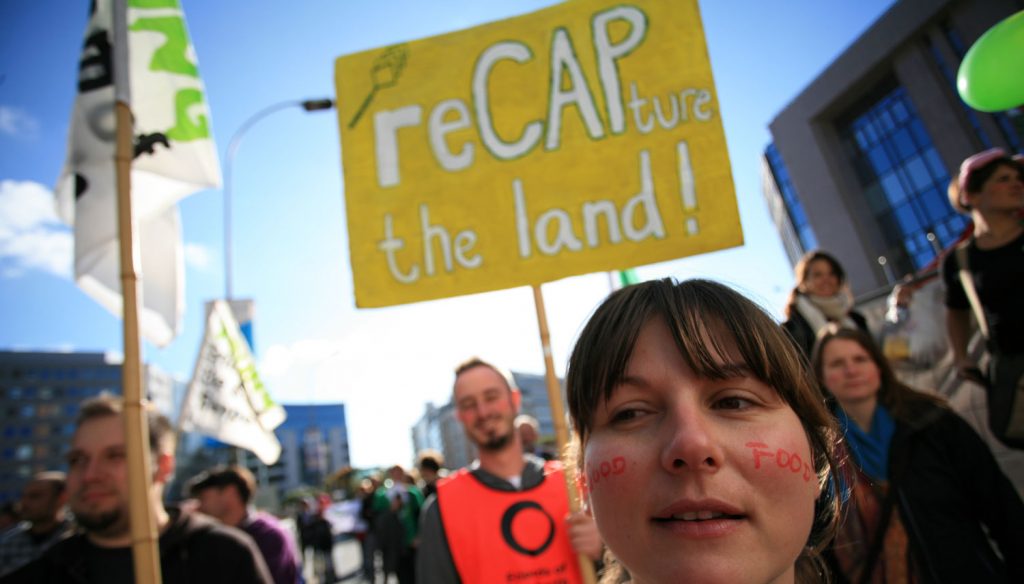As the dust starts to settle after new EU farming rules were proposed, Adrian Bebb, food and farming campaigner at Friends of the Earth Europe, looks ahead at their likely impact
Reforms of the EU’s Common Agriculture Policy (CAP) – a multi-billion Euro project that accounts for around a third of the EU’s entire budget – feel like a regular part of the workings of the EU. Virtually everyone agrees that the CAP needs to be reformed, made “fit for the future” and so on. But generally there is little political will by national and EU decision-makers for real change so we end up tinkering with an outdated system instead of turning it upside down.
Calls for a major overhaul of EU agriculture have been getting louder recently. As a result of corporate-led industrial agriculture, shocking levels of nature are being wiped out, farmers are leaving the business in droves and the impacts of climate change are worsening. The need for real change in our farming system is starting to becoming existential not only for the millions of threatened farmers, but also mankind itself.
The publication of the draft legislation for the next CAP earlier this month revealed no surprises: it clearly does not go far enough to address the urgent problems farming is facing. The tinkering this time is around pushing decision-making down to EU Member States. National governments would need to develop their own CAP strategies to be approved and monitored by the European Commission in order to receive subsidies.
This means there is a real danger of a race to the bottom for environmental standards. Many national governments and powerful farming unions are more concerned about making agriculture ‘globally competitive’ rather than sustainable.
The EU-wide rules, creating a partially-level playing field between farmers in different countries, including rules to prevent the dramatic loss of wildlife are not changing much, despite the fact that words like “sustainability” and “environment” are mentioned several times. There is not much offered to farmers who want to do more for the environment, who are left to figure it out themselves. It will be dog-eat-dog as agriculture policy encourages farmers to compete against other within the EU. Those who cut costs the most are more likely to survive. It’s going to need one hell of a monitoring programme on behalf of the European Commission to ensure environmental and climate safeguards are enhanced and implemented. We remain sceptical this will be effective.
What we needed was a substantial reform helping to transition towards sustainable food systems that would have given more public legitimacy for spending so much taxpayers’ money on the farm sector. Instead of cutting rural development funds there should have been more emphasis on building local food markets and a big push to get farmers off the pesticide and agribusiness treadmill. We clearly need a plan to reduce livestock numbers in the EU with a phase-out of factory farms. Despite the green words coming out of Phil Hogan, the EU Agriculture Commissioner, the decision to devote funding to eco schemes remains in the hands of Member States and clear environmental standards for a more regenerative agriculture are missing.
The proposals are not going to solve the problems in the sector. We urgently need to halt the loss of both biodiversity and small farms. We need the CAP to shift agriculture towards agroecology – building local rather global businesses, stop supporting climate-busting industrial livestock farms, regenerating soils rather than exhausting them. Our existence as humans on this planet depends on our ability to transform agriculture onto a sustainable footing. Our window of opportunity to do this is shrinking. History will tell how much a failure this CAP reform will be.







